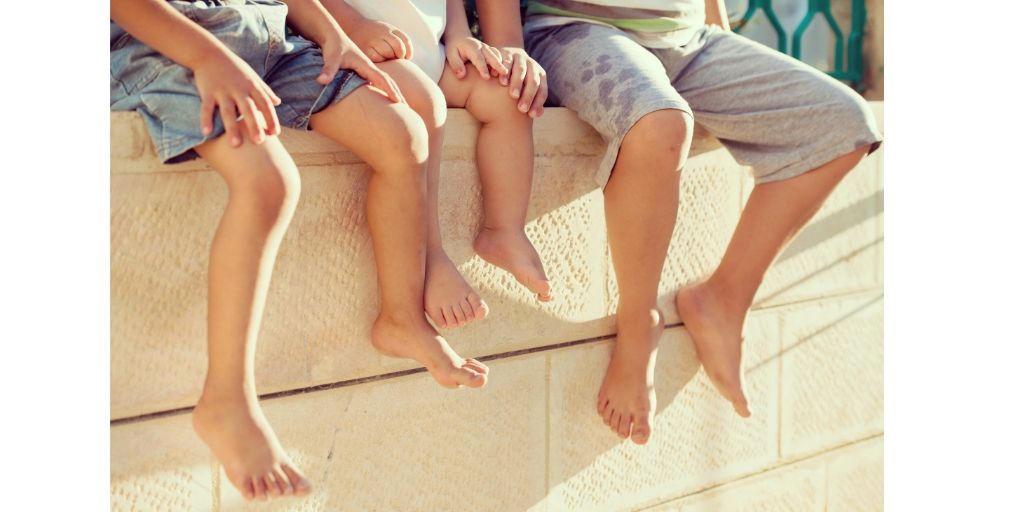Underage alcohol-use
Most people would say they are against underage drinking but statistics show we are more lenient when it comes to giving our own kids a ‘try’ of drinks.
Understanding the legal age to drink in the UK is crucial for parents and guardians. Having your first drink is almost a rite of passage for many people. It is a sign you are growing up and no longer a kid, where you can drink like adults. However, it is becoming more and more common for young people, even children, to start imbibing alcohol at a young age, without any thought for the long-term ramifications to their health and wellbeing. It may seem like just a drink or a bit of fun at the moment, but who can say how underage drinking can affect an individual in the future?
Health Advice on Underage Drinking
There is no denying that studies have shown that if a person begins partaking in alcohol as a child, it heightens the possibility they may abuse alcohol or develop an addiction as a teenager, which may stay with them until adulthood. Experts believe that youngsters who imbibe before 15 years old are increasingly at risk of abusing alcohol when they get older. This is partly why the chief medical officers in the country feel it is better that children are not given any alcohol at all, for a healthier future and to avoid the possibility of falling into addiction in later life.
Some see nothing wrong with giving children a taste of alcohol, just to try it, on a special occasion. It could be a one-off treat for Christmas, to celebrate a birthday or ring in the new year. A parent, grandparent, or other relatives may have considered it a harmless tipple, but underage drinking may lead to a child growing up believing they could drink alcohol with impunity, and free of consequence.
Children may wish to try some alcohol after seeing an older person partake and want to know what the fuss is about. Some may wish to consume alcohol just because they have been told they cannot and enjoy the thrill of breaking the rules.
However, experts advise that, if a child asks if they could have a sip of their dad’s beer or grandad’s whisky, you should take it as an opportunity to have a discussion on the possible pitfalls of alcohol. Where you could speak frankly to your child about what can come from consuming alcohol and that underage drinking is not all fun and games, to equate them with the facts about drinking, so they could make an informed decision when they are older.
This could provide your child with the knowledge and the guidance they need to prevent them from drinking too much and falling into dependency when they get older.
Talking to Your Child
It is best to familiarise your child with everything they need to know about underage drinking. From answering questions pertaining to their health, to addressing issues of legality concerning alcohol use in the UK.
According to official sources, in England and Wales, if you are under the age of 18, the police can stop you and you may be fined or arrested if you are found to be drinking in the street. There are already public intoxication laws in force in Scotland, prohibiting imbibing out in the open.
Is Underage Drinking A Criminal Offence?
At what age can you give a child alcohol is a common question among parents thinking of giving their children the first try of beer or wine. The law depends on the circumstances. If you are under 18 though, wherever you live in the UK, you should be aware that it is illegal to buy or attempt to buy alcohol and a proprietor will be breaking the law if they sell it to you. Under 18s are also prohibited by law to consume alcohol in a licensed establishment, such as a pub, club or restaurant.
Those aged 16 or 17 may be permitted to drink beer, wine or cider with their dinner if accompanied by an adult, but they cannot buy alcohol themselves. In some instances, those aged 16 and under may be allowed inside a pub, club, off-license or other places where alcohol is sold, in the company of an adult. They may not always be permitted, as it may depend on the individual establishment. However, people should be aware it is against the law to give a child under the age of 5 something alcoholic to drink, quite understandably. Although underage drinking on private property is not illegal unless the child is under 5 years old we do not recommend it.
Underage Drinking Statistics in the UK
It is often felt an individual’s personal association with alcohol may be established during adolescence, which may determine if they have drink-related issues at an older age. Underage drinking statistics say the number of teenagers drinking alcohol in the UK is amongst the highest in Europe. Alcohol is reportedly the number one most addictive substance used by teenagers in Scotland. Incredibly, it has been reported over 30% of 13-year olds and a massive 70% of 15-year-olds in Scotland have consumed alcohol. Research also states almost half of 13-year olds and 70% of 15 years have sampled alcohol on at least one occasion.
Many feel that underage drinking can lead to a pattern of drinking which can continue as you get older. It has been documented that over 80% of people between the ages of 16 to 24 years old in Scotland drink alcohol. If you imbibe over a long period of time, it could lead to various physical and psychological problems, such as an increased risk of heart disease and cancers in later life, as well as mental health issues. It could also have an impact on your work or home life, affecting your relationships with partners, friends or loved ones, and it all could have begun with drinking alcohol in your childhood.
Some believe it may be a product of your upbringing or environment. Others maintain certain people may have a genetic predisposition for drinking if they had a parent with a drinking problem. Furthermore, some parts of the country are said to have a drinking culture, where imbibing alcohol is almost a part of everyday life where you go out drinking with your friends in the pub at the weekend. However, as hard as it may be to believe, many people can trace their alcohol intake as an adolescent back to that first drink, they had as a child, which may give people pause the next time they let their kids have a wee drop at Christmastime. They never again say “What harm can it do?”
Alcohol: The Leading Drug of Choice
Alcohol Intervention Advice for Alcohol Dependency

Fiona Kennedy is an editor and content manager who earned her Master of Arts degree from the University of Edinburgh, followed by completing the CELTA Cambridge teaching course in English. She has worked as an editor, writer and personal coach. Coming from a family deeply involved in the rehabilitation and support of those suffering from addiction, she is passionate about helping people to understand and take control of their dependences. Fiona’s other passions include travelling and taking part in community projects.


